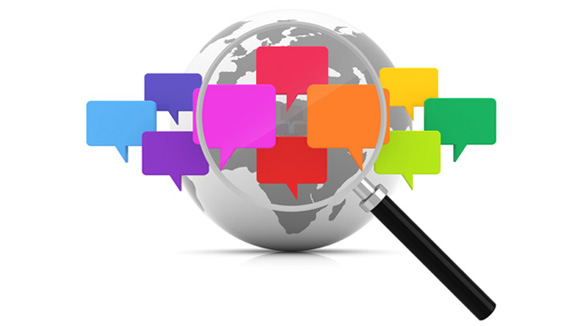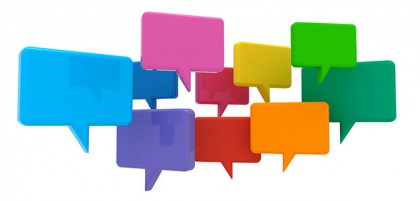Online Defamation: What you need to know
Be careful what you say online

Shock and disbelief. This was Julie Posetti's reaction to discovering that the Editor-in-Chief of The Australian was suing her for defamation. The substance of his complaint? Three tweets.
While covering another journalist's presentation at an academic conference in 2010, Posetti live-reported the event on Twitter, quoting and summarising the speaker's description of working conditions at The Australian and claims regarding the Editor-in-Chief, Chris Mitchell.
Mitchell objected to the tweets in his paper the next day, calling the claims a lie and threatening to sue Posetti for an attack on his character.
Widely reported as the first Australian Twitter defamation action, the controversy took many in the journalist community by surprise, not the least of all Posetti herself.
"My human reaction was shock and disbelief, I suppose," she says. "I think there was also the sensational element that came from this possibly being the first incidence of a Twitter defamation case. But I maintain what I felt then, which was from my point of view, I was doing the sort of work that I had done on a daily basis as a radio news reporter going to a conference, reporting what I heard, doing so I believe fairly and accurately in what is essentially a real-time environment."

As an experienced journalist and a journalism lecturer at the University of Wollongong (one whose PhD focus is The Twitterisation of Journalism, no less), Julie Posetti would have possessed a professional understanding of issues surrounding defamation liability, which is more than you can say for the majority of Facebook and Twitter users sharing content online.
But that expert knowledge wasn't able to prevent her from being hit with a headline-making lawsuit (later dropped), highlighting the scale of exposure where social media meets the law.
Sign up for breaking news, reviews, opinion, top tech deals, and more.
Social media equals a billion voices
In October 2012, Mark Zuckerberg made a personal announcement on his social network that in September, Facebook had reached more than one billion monthly active users.
As the Facebook co-founder put it, "Helping a billion people connect is amazing, humbling and by far the thing I am most proud of in my life".
In the same year, Twitter hit over 500 million accounts, Time magazine used Instagram to officially document the effects of Hurricane Sandy, and relative newcomer Pinterest crept into the top 50 most visited web sites for the first time. Social technology, no matter which way you look at it, is a hit.

But despite the rampant growth of social media and networking services, what many users fail to grasp is that communications shared in public on the net can potentially leave them exposed to legal liability for defamation.
If you say something in public — be it on a blog, a forum, on Facebook or Twitter — and it falsely injures the reputation of another, you could easily be sued, provided a valid defence to what you wrote doesn't apply.
In the eyes of the law, social media users, bloggers and online commenters are all 'publishers', regulated by historical defamation laws that largely applied only to journalists and traditional media interests like newspapers and magazine companies.
This isn't to say that defamatory communications are always pursued in the courts, but the ease of our contemporary access to digital publishing is an unprecedented development in the history of human communication, and the risk of legal liability is closer than most think.

"It's unlikely, it's a lightning-strike possibility, but then, so is much of defamation action traditionally in the print media," says Mark Pearson, Professor of Journalism at Bond University and author of Blogging and Tweeting Without Getting Sued: A Global Guide to the Law for Anyone Writing Online. "There are countless more quantities of defamation happening and published than are actioned. It's always been a drop in the ocean. I can open almost any newspaper and see potentially defamatory material, particularly as I get away from the mainstream publishers and into suburban and regional press. There's all sorts of litigious material being published that doesn't necessarily have a defence. But people either don't know, don't care or can't afford to pursue it, and that's the same online now, with gigabytes of such material out there, only some of which is targeted and actioned.".